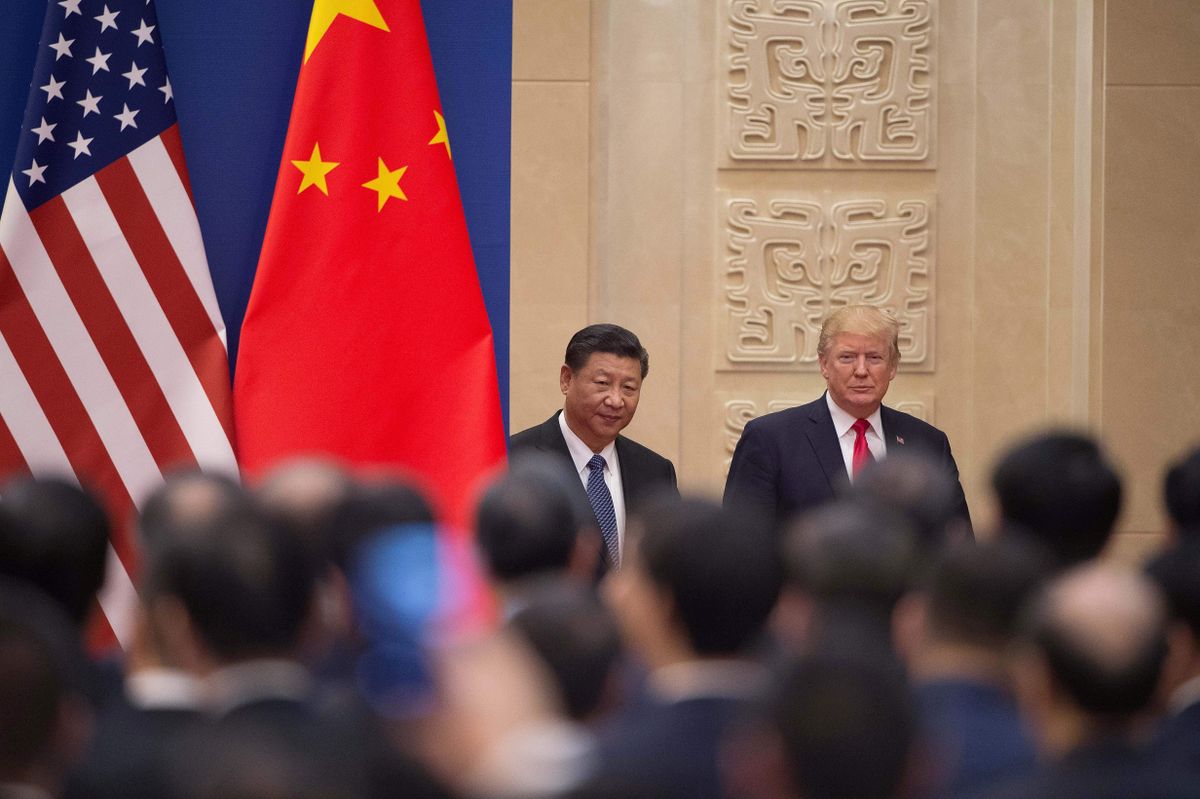
Wafricnews - June 9, 2025
London, UK - Top officials from the United States and China will meet in London on Monday in a high-stakes attempt to reset relations between the world’s two largest economies, as trade tensions threaten to drag down global growth.
London, UK - Top officials from the United States and China will meet in London on Monday in a high-stakes attempt to reset relations between the world’s two largest economies, as trade tensions threaten to drag down global growth.
The U.S. delegation, led by Commerce Secretary Howard Lutnick, will sit across the table from a Chinese team headed by Vice Premier He Lifeng. Also present will be U.S. Treasury Secretary Scott Bessent and Trade Representative Jamieson Greer. Rare earth exports, computer chip restrictions, and access to artificial intelligence-related technologies are expected to dominate the agenda.
The talks come on the heels of a brief but fragile truce reached in Geneva last month, which saw both sides reduce tariffs. However, accusations of backsliding have since emerged. Washington claims Beijing has not delivered on key non-tariff commitments, while China has criticized U.S. export bans and visa restrictions.
President Donald Trump, speaking after a recent phone call with President Xi Jinping, described the exchange as a “very good talk” and claimed the conversation ended “on a positive note for both countries.” It was the first direct engagement between the two leaders since the trade war erupted in February.
Rare Earths and Tech in Focus
Central to the discussions will be rare earth metals—a category of minerals critical to high-tech manufacturing, from smartphones and electric vehicles to advanced weapons systems. China controls roughly 69% of global rare earth production, giving it outsized leverage in any negotiation involving modern technologies.
Swetha Ramachandran, a fund manager at Artemis, told the BBC that China’s dominance makes this a crucial area of compromise: “There are enough chips on the table here that could make it acceptable for both sides to walk away with desired outcomes.”
Adding to the complexity is the presence of Lutnick, a key figure behind Washington’s aggressive tech restrictions on China. His involvement signals the seriousness of U.S. intentions to enforce controls on exports like semiconductors and AI-related tools.
Promises Made, Accusations Traded
Though the Geneva talks in May marked what Trump called a “total reset,” the subsequent weeks have seen that optimism fray. The temporary truce brought U.S. tariffs down to 30% and Chinese duties to 10%, with a 90-day window to hammer out a long-term deal. China also pledged to lift barriers on rare earth exports.
But Washington now says China failed to ease restrictions on rare earth magnets, while Beijing has hit back, accusing the U.S. of breaching terms by halting sales of chip design software and targeting tech giant Huawei. It also protested against cancelled visas for Chinese students.
Over the weekend, Beijing’s Commerce Ministry announced it had granted some export licenses for rare earths, though it did not specify which countries or companies were approved. Trump responded by stating that China had agreed to resume rare earth trade, but U.S. officials remain skeptical.
Kevin Hassett, Director of the White House National Economic Council, told CBS News on Sunday:
“Those exports of critical minerals have been getting released at a rate that is higher than it was, but not as high as we believe we agreed to in Geneva.”
Trade War’s Ripple Effects
The continuing uncertainty around U.S.-China trade relations is already having ripple effects on the global economy. The OECD has revised its 2025 global growth forecast down to 2.9%, citing a “significant” increase in trade barriers as a key driver.
“Almost no region will escape the effects of this standoff,” the organization warned, underscoring fears that the U.S.-China trade dispute is reshaping global commerce and investment flows.
Fresh data from China released on Monday showed a mixed picture. While exports in May were up 4.8% year-on-year, imports fell by 3.4%—a larger drop than expected. Analysts say the figures reflect both international trade tension and weaker domestic demand.
What’s at Stake
For the U.S., maintaining dominance in high-tech innovation is non-negotiable. For China, securing access to strategic technology and export markets is vital for sustaining growth. With both sides unwilling to cede ground, the London meeting may prove crucial—not just for the two superpowers, but for a global economy that can no longer afford prolonged uncertainty.
By WafricNews Desk.
By WafricNews Desk.


Comment
To post a comment, you have to login first
LoginNo Comments Yet...